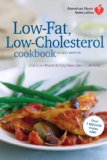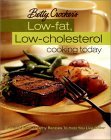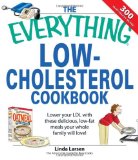What it Cholesterol?
Cholesterol is a fatty-like substance which is made in the liver. It is an essential fundamental substance in all organisms. Cholesterol is found in all cells of the human body. The body can supply itself with all the necessary amounts of cholesterol (roughly 1 to 1,5g a day) which means that there is no need to consume additional cholesterol.
Cholesterol: Role in the Body
- It is the major precursor for the synthesis of steroid hormones, e.g. sexual hormones
- Activation of vitamin D and transport of the vitamin
- Fundamental substance of bile acid
- Component of the sebaceous gland secretion
- It is an important component of the membranes of cells, providing stability.
Cholesterol in Food and the Cholesterol Level in the Blood
The consumption of dietary cholesterol causes the body's own cholesterol production to decrease so that the intake of dietary cholesterol will not necessarily lead to increased blood cholesterol. The body can also control the intake of dietary cholesterol. Experts have completely different opinions on what kind of influence foods, such as eggs, have on the cholesterol levels.
Cholesterol and Health
High blood cholesterol levels undoubtedly cause heart diseases. However blood cholesterol levels can be an inherited genetic condition which means that the levels can not really be controlled. The cholesterol levels can only be decreased by 10-15% if the amount of saturated fat is radically decreased in the diet and the intake of dietary fibre is increased.
Cholesterol in Food:
Sausages, meat, eggs, butter, cream, regular cheese and mayonnaise, poultry giblets, shell prawns and lobster are all high in cholesterol. There is no cholesterol in plant foods.
top 

American Heart Association Low-Fat, Low-Cholesterol Cookbook, 4th edition: Delicious Recipes to Help Lower Your Cholesterol,
American Heart Association
|
LDL and HDL Cholesterol
In a nutshell, the term cholesterol summarises the HDL-Cholesterol, LDL- Cholesterol, the total cholesterol as well as dietary cholesterol.
Blood is watery and cholesterol is fatty. Just like oil and water, the two do not mix. So, in order to travel in the bloodstream, cholesterol is carried in proteins called lipoproteins. There are two types of lipoproteins:
- LDL (Low Density Lipoproteins) = Lipoproteins
- HDL (High Density Lipoproteins) = Lipoproteins
LDL carry about ¾ of the cholesterol in the blood . LDL-Cholesterol is also referred to as "bad cholesterol" because of the high LDL levels in the blood which increase the risk of cholesterol being deposited in the arteries ultimately leading to atherosclerosis (arterial disease). Atherosclerosis is one of the main causes of heart diseases and strokes.
HDL, on the other hand, carry cholesterol from the body's tissues back to the liver where it is decomposed. High HDL-Levels are seen as positive, as they counteract arterial calcification. For this reason HDL is sometimes referred to as "good cholesterol".
top 

Cholesterol Down: Ten Simple Steps to Lower Your Cholesterol in Four Weeks -Without Prescription Drugs, Janet Brill

Betty Crocker's Low-Fat, Low-Cholesterol Cooking Today

The Everything Low-Cholesterol Cookbook: Keep you heart healthy with 300 delicious low-fat, low-carb recipes (Everything: Cooking), Linda Larsen
|

